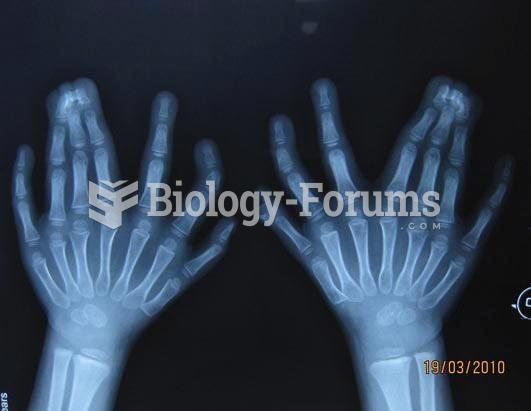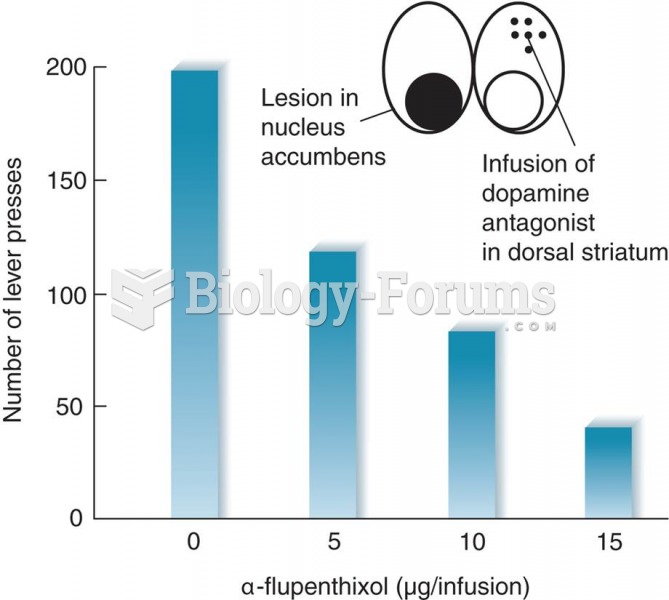|
|
|
Increased intake of vitamin D has been shown to reduce fractures up to 25% in older people.
The word drug comes from the Dutch word droog (meaning "dry"). For centuries, most drugs came from dried plants, hence the name.
Pink eye is a term that refers to conjunctivitis, which is inflammation of the thin, clear membrane (conjunctiva) over the white part of the eye (sclera). It may be triggered by a virus, bacteria, or foreign body in the eye. Antibiotic eye drops alleviate bacterial conjunctivitis, and antihistamine allergy pills or eye drops help control allergic conjunctivitis symptoms.
Bacteria have flourished on the earth for over three billion years. They were the first life forms on the planet.
In most cases, kidneys can recover from almost complete loss of function, such as in acute kidney (renal) failure.







